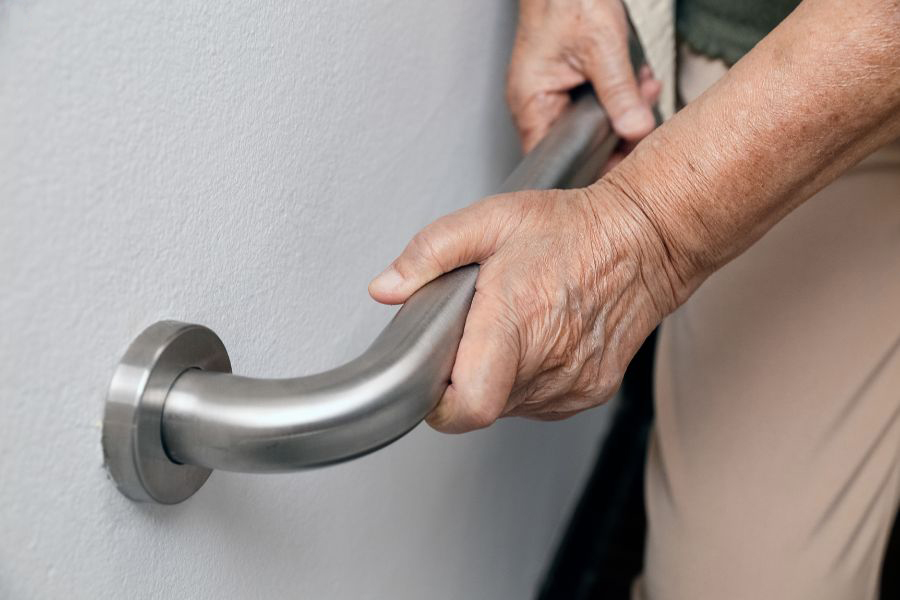As our loved ones age, ensuring they receive the best possible care becomes a top priority. Home healthcare allows seniors to maintain their independence while receiving the support they need. However, selecting the right provider can be overwhelming. This guide will help you navigate the process and make an informed decision for your loved one’s well-being.
Assess your loved one’s needs
Before choosing a home healthcare provider, it’s crucial to evaluate the level of care your loved one requires. Are they in need of medical assistance, or do they require help with daily living activities?
If your loved one has a chronic condition or is recovering from surgery, skilled nursing services may be necessary to ensure proper medical care and monitoring. Skilled nurses can assist with wound care, medication management, injections, and other specialized medical needs. If your loved one requires assistance with daily activities such as mobility, bathing, dressing, or meal preparation, a caregiver or personal aide might be a better fit. These professionals provide essential support that enhances comfort, safety, and overall quality of life.
Understanding these specific needs is crucial in determining the right level of care required. Some individuals may benefit from a combination of both medical and non-medical support, depending on their health status and daily challenges. When selecting a provider, consider factors such as experience, reputation, and the ability to customize services to meet your loved one’s unique needs. By carefully assessing these aspects, you can make an informed decision that ensures the best possible care and support for your loved one’s well-being.
Additionally, consider emotional and social needs. A great home healthcare provider should not only focus on medical care but also provide companionship and emotional support, promoting a higher quality of life for your loved one.
Verify licensing, certifications, and experience
Not all home healthcare providers are created equal. To ensure quality care, verify that the agency is licensed, accredited, and certified by relevant authorities such as Medicare, Medicaid, or the state health department.
Experienced providers with a solid reputation will have highly trained staff, including registered nurses, therapists, and caregivers. When choosing a home healthcare provider, it is essential to ask about their hiring process, training programs, and background checks to ensure they employ only the most qualified and compassionate professionals. A reputable provider will have stringent hiring criteria, including thorough screenings, credential verifications, and hands-on assessments to evaluate skills and expertise.
Additionally, well-established providers invest in continuous education and training to keep their staff updated on the latest medical advancements, safety protocols, and patient care techniques. This ensures that caregivers and medical professionals can deliver the highest quality of care while adapting to patients’ evolving needs.
Checking online reviews and asking for recommendations from friends, family, or healthcare professionals can also help you gauge the reliability of a provider. A well-established provider with positive feedback is more likely to deliver exceptional care.
Understand insurance and payment options
Home healthcare can be costly, so understanding insurance coverage and payment options is essential. Determine whether the provider accepts Medicare, Medicaid, VA benefits, or private insurance. Some providers also offer flexible payment plans for those paying out-of-pocket.
A trustworthy home healthcare agency should be transparent about costs and help you navigate the complexities of insurance claims and coverage eligibility. Understanding the financial aspect of home healthcare is crucial, as unexpected costs can create unnecessary stress for families already managing the emotional and logistical challenges of caregiving. A reputable agency will take the time to discuss all expenses upfront, providing clear explanations of service fees, payment options, and potential out-of-pocket costs.
Additionally, they should assist in verifying insurance benefits, ensuring that you maximize available coverage through Medicare, Medicaid, private insurance, or VA benefits. This guidance can help families make informed decisions about care options without worrying about unexpected financial burdens. Open communication about costs fosters trust between the agency and the family, reinforcing the commitment to delivering high-quality, compassionate care. By addressing these financial details proactively, you can focus on what truly matters—ensuring your loved one receives the support, comfort, and professional care they deserve.
Ensure personalized and compassionate care
Every senior has unique needs, and a one-size-fits-all approach to care won’t work. Look for a provider that offers personalized care plans tailored to your loved one’s medical, emotional, and daily living requirements.
Compassionate caregivers play a crucial role in enhancing a senior’s quality of life. As people age, they may face physical limitations, cognitive challenges, or feelings of loneliness. A dedicated caregiver can provide not only essential assistance with daily activities but also emotional support, companionship, and encouragement. The right caregiver should be patient, understanding, and committed to making your loved one feel comfortable, respected, and valued.
When choosing a caregiver, it’s important to find someone who aligns with your family’s expectations and your loved one’s unique needs. Scheduling an initial consultation with potential providers allows you to assess their qualifications, experience, and approach to caregiving. This meeting provides an opportunity to ask about their training, caregiving philosophy, and how they handle various situations, such as emergencies or changes in a senior’s condition.
A good caregiver fosters trust, builds strong relationships, and helps seniors maintain independence and dignity while receiving the care they need. By taking the time to find the right caregiver, you can ensure that your loved one receives compassionate, professional support that enhances their well-being and overall quality of life.
Evaluate communication and availability
Clear communication between the home healthcare provider, the patient, and the family is essential for ensuring the best possible care. When choosing a provider, it’s important to find one that prioritizes transparency and keeps you informed about every aspect of your loved one’s well-being. Regular updates on their condition, changes in their care plan, and any concerns that arise can help you feel confident that they are receiving the highest quality of care.
A reliable home healthcare provider should have open lines of communication, allowing family members to ask questions, voice concerns, and stay actively involved in the care process. This includes providing detailed reports on the patient’s progress, promptly notifying family members of any changes in their condition, and explaining treatment options in a clear and compassionate manner.
Additionally, effective communication between the provider and the patient is just as important. Caregivers should take the time to listen to the patient’s needs, preferences, and concerns, ensuring they feel heard and respected. A strong partnership between the healthcare team, the patient, and the family fosters trust and collaboration, ultimately leading to better health outcomes.
When evaluating home healthcare providers, look for those that emphasize responsiveness, compassion, and a commitment to keeping you well-informed. Choosing a provider that values communication ensures your loved one receives the best possible care while giving you peace of mind knowing they are in good hands.
Conclusion
Selecting the right home healthcare provider is a crucial decision that impacts your loved one’s health, safety, and overall well-being. By assessing their needs, verifying credentials, understanding payment options, prioritizing compassionate care, and ensuring open communication, you can make an informed choice. Taking the time to research and select the right provider will give you peace of mind, knowing your loved one is in capable and caring hands.






